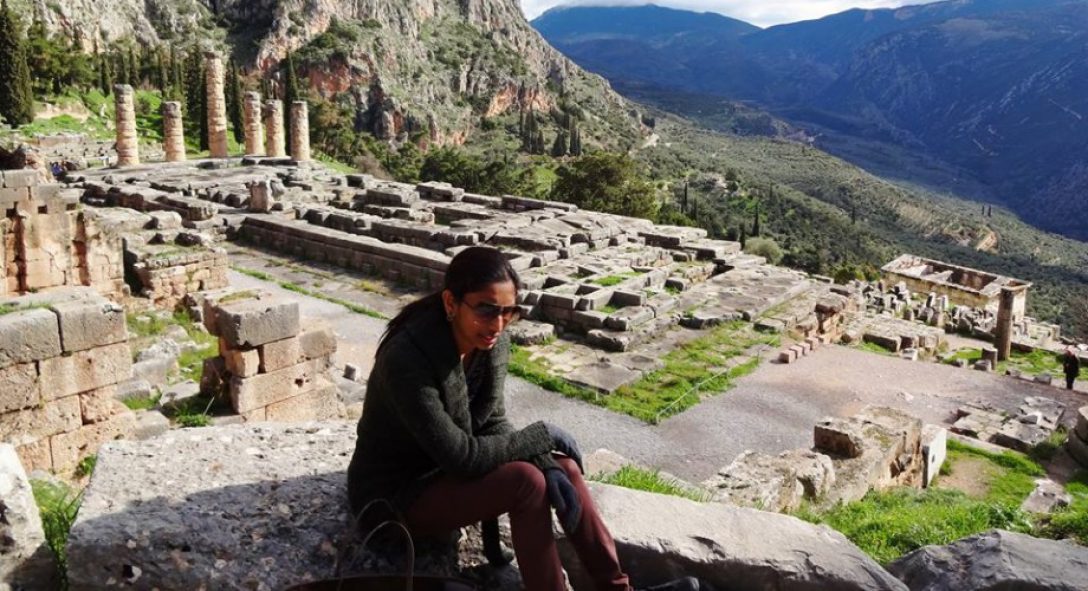Well, this began in part as a resolution to write more regularly but it’s also something that’s been on my mind for a while now, albeit as a vague thought process. A couple of conversations in the last few days have just served to catalyse it into a more lucid expression.Growing up, I was quite often termed, in varying degrees of exasperation and amusement, as too optimistic, naïve, idealistic (and consequently, unrealistic). A high school friend would constantly caution that I was looking at the world through rose tinted glasses. “You don’t understand how people can be”, my mother would bemoan, quite sure that her daughter would not survive in the ‘big bad world’.
My defense then, as it is now, is that the world is what you make it to be. Quite simply, what you reflect is also what you see. Or, at the risk of being too reductionist, it’s the age-old adage of believing in good for good to happen.
In times when we are increasingly assaulted by news of crimes that highlight human depravity, I understand why this seems like a churlish thought. And thereby, a disclaimer here…I do know fully well that the world, people or just life in general doesn’t work as simplistically as that. And that being careful and watchful is imperative to the times we live in. I have no disagreement there.
It is the pervasiveness and intensity of our carefulness that troubles me.
From safe guarding ourselves, our physical possessions and our bank accounts to protecting our digital lives, we seem to have become guarded about our thoughts and emotions as well. So much so that our default position as we navigate through life seems to be one of caution. We think twice about conversing with a stranger on a train. We look around before typing our passwords. We are tentative about giving our keys to our neighbours. This sense of ‘carefulness’ seems to insidiously yet definitively percolate our mental makeup to a point that we instinctively wonder if there is a hidden motive when someone is nice to us.
I sound much too old when I say this, but I recall times when a train journey from Chennai would mean that any ‘Maami’ sitting in front of us would know everything about my family by the time we got off in Bangalore. From my dad’s profession and my mom’s relationship with her in laws to the special ingredient in my grandmom’s Avakkai pickle. And vice versa, of course. This heartfelt and colourful exchange of stories would, of course, be interspersed by an equally heartfelt exchange of snacks. This was, of course, before all of us had cellphones but also before we started believing that strangers offered food with the sole intention of drugging us and robbing our bags!
While one could argue that technology has replaced human interaction, one can’t deny that there is also a paradigm shift in how we perceive the world and people around us. How many of us readily give our laptops and phones to others (don’t even get me started on the phone… the passwords and locks that some people have on it are worthier of state secrets than the embarrassing photograph that they actually want to hide!!)?
Granted, the world isn’t all roses and fairies and we do need to exercise a certain amount of caution in everything. But it is unfortunate when being careful gives way to a constant state of cynicism and skepticism.
As adults, it is a constant struggle to keep aside our frames of reference or at least widen them in order to do justice to the various situations and people we encounter. But it is especially saddening when we pass these patterns of thought to children. I remember an aunt telling her young daughter to never be alone in any friend’s house if a female member of the household wasn’t around. The advice disturbed me then and left me wondering if we were robbing young minds of their innocence too early and painting the world too dark for our children?
Our most protective instincts are often reserved for our children and rightly so. But in trying to protect them, are we transferring our fears and judgements to impressionable minds? And in doing so, are we feeding a world that already shows surprising intensities of divisiveness and polarity?
It is possible to raise them with an increased sense of awareness and sensitivity rather than burdening them with the need to evaluate every glance, word and touch, isn’t it? And doesn’t the same hold good for how we walk through life as well? We don’t have to set ourselves up as easy targets but neither do we have to live in preparation for the worst. Even an accused criminal is given the space of being considered innocent until proven guilty. Why are we so quick then, to judge the stranger smiling at us on the street?
And this leads to a more fundamental question that we should probably ask ourselves once in a while. In our urge for self- protection, are we curtailing our expression, our feelings, our freedom, and fundamentally crippling ourselves and our scope of life? After all, the boundaries that protect us also limit us.
As I would counter my high school friend, while I try very hard to keep the glass clear, better rose tinted glasses than dark shades. Soothing on the eye as the shades might be, one misses the brightness of the world.
PS: I’m struck by how I’ve instinctively used the word ‘our’ to talk about children. I wonder if it’s just age. Or I’m probably growing up after all 😛
